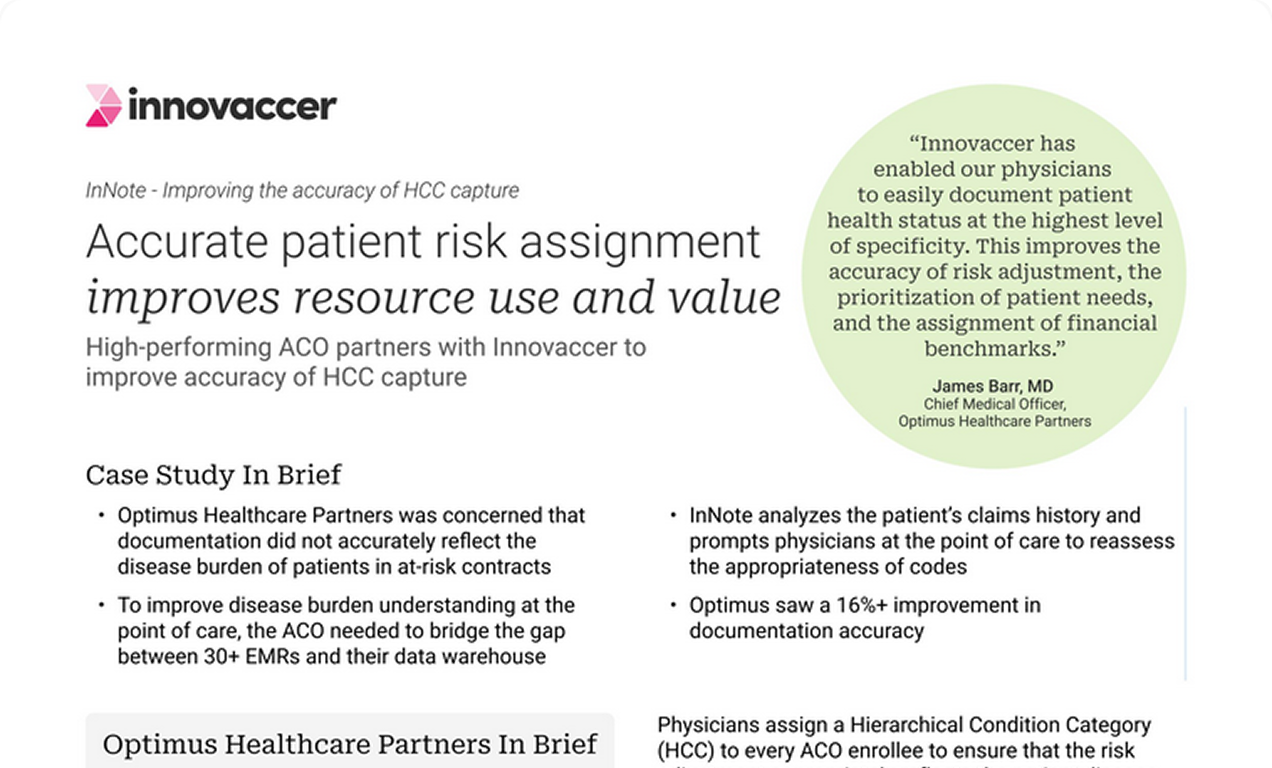The Role of Data Analytics in Value-Based Care Implementation

Value-based care is gaining momentum in the Middle East, replacing ineffective traditional models with more cost-effective and high-quality care. Data analytics is at the heart of this change, enabling providers to make informed decisions while optimizing financial and patient outcomes. For healthcare organizations across the Middle East, success now depends on building the right infrastructure to leverage the transformative power of data.
Here’s how data analytics will play a key role in driving the transition to value-based healthcare:
Better Risk Management
Managing risks in value-based care involves a proactive approach that leads to early identification and mitigation of potential risks before they become costly. Given the prevalence of chronic conditions like diabetes and cardiovascular disease in the Middle East, providers can rely on data analytics for sophisticated risk management.
Predictive analytics and risk stratification can enhance the identification of high-risk patients that warrant attention. This would allow providers to focus on preventive measures, reducing the requirement for high-cost treatments at a later stage.
Enhancing Patient Engagement with Data-Driven Insights
A recent BCG survey of 2,000 people in the Middle East uncovered patient expectations around healthcare experiences. With easier bookings to minimal wait times, patients are looking beyond the qualifications of the medical staff as determinants to top-notch care.
This is where data can be a game-changer. Providers can employ data analytics to extract meaningful insights from available patient data such as preferred communication channels and treatment adherence patterns. This can inform strategies to improve communication with patients like executing personalized outreach campaigns for better engagement.
Providers can also tailor treatment plans according to the needs and preferences of each patient. This would lead to better patient satisfaction and improved health outcomes which are crucial for achieving value-based care objectives in the Middle East.
Boosting Population Health Management
With non-communicable diseases (NCDs) accounting for about74% of deaths in the Middle East, organizations need a systematic and evidence-based solution. Healthcare providers are using data to tackle such challenges head-on. For instance, Saudi Arabia has reorganized its healthcare delivery into geographical “ clusters” that serve as Accountable Care Organizations (ACOs). These leverage interoperable data systems to integrate clinical and non-clinical information to provide real-time and actionable insights.
AI-driven predictive analytics can help providers identify health risks early by detecting subtle patterns in population health data. Understanding population segments and their specific needs through analytics can also help providers devise more targeted and effective interventions.
Optimizing Resource Allocation
Healthcare resources are often limited and unable to keep up with patient needs. Organizations can deploy data analytics to identify areas where resources can be optimized. From medical supplies to diagnostic equipment, data analytics can help track if such resources are being used judiciously.
AI can be leveraged to analyze historical data and forecast future demands. Thus, preparing organizations to allocate resources as and when needed. This streamlines the delivery of care, saving valuable resources and time.
Addressing Social Determinants of Health (SDOH)
Advancing value-based care is simply not possible without focusing on the holistic needs of patients. While most providers are aware of the clinical needs of patients, social factors that play a critical role in influencing patient outcomes can often be ignored.
Healthcare organizations in the Middle East are now leveraging data aggregation and analysis to capture both the clinical and non-clinical needs of patients such as housing and nutrition. This holistic approach will lead to better treatment plans as it would help to identify and address the root cause of health issues rather than just treating symptoms. Thus, achieving the quality and cost objectives of value-based care.
In the end
Value-based care is here to stay, and so is data analytics. Healthcare organizations in the Middle East must gear up and define a clear path to achieving their VBC objectives, built on the foundation of data-driven decision-making. This would not only improve financial and operational efficiency but lead to establishing an ideal patient-centric model.


.png)






.avif)









.svg)
.svg)

.svg)

